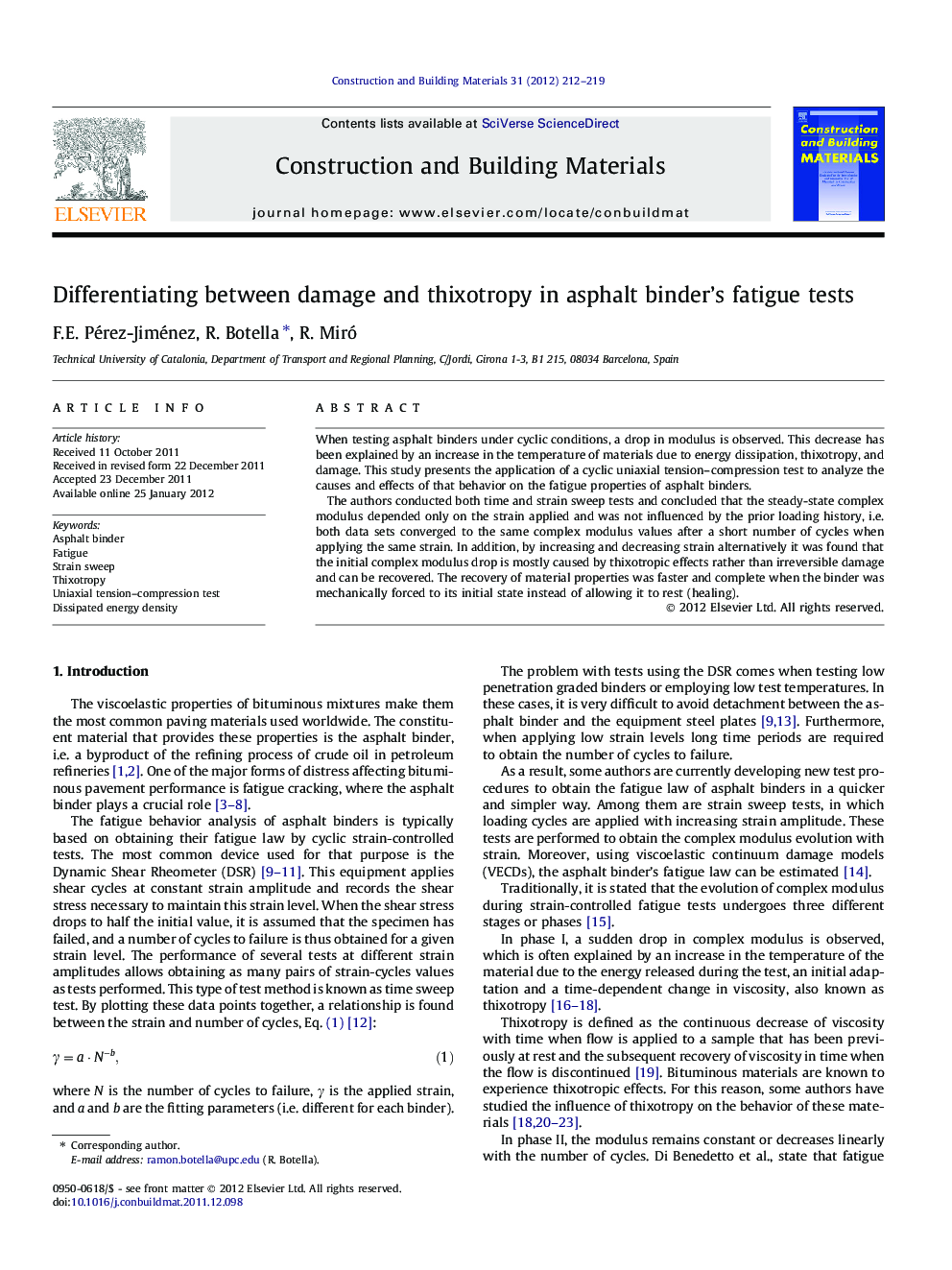| Article ID | Journal | Published Year | Pages | File Type |
|---|---|---|---|---|
| 258938 | Construction and Building Materials | 2012 | 8 Pages |
When testing asphalt binders under cyclic conditions, a drop in modulus is observed. This decrease has been explained by an increase in the temperature of materials due to energy dissipation, thixotropy, and damage. This study presents the application of a cyclic uniaxial tension–compression test to analyze the causes and effects of that behavior on the fatigue properties of asphalt binders.The authors conducted both time and strain sweep tests and concluded that the steady-state complex modulus depended only on the strain applied and was not influenced by the prior loading history, i.e. both data sets converged to the same complex modulus values after a short number of cycles when applying the same strain. In addition, by increasing and decreasing strain alternatively it was found that the initial complex modulus drop is mostly caused by thixotropic effects rather than irreversible damage and can be recovered. The recovery of material properties was faster and complete when the binder was mechanically forced to its initial state instead of allowing it to rest (healing).
► New test method for differentiating between damage and thixotropy: the up & down strain sweep test. ► The initial drop observed in complex modulus and dissipated energy density is related to thixotropy. ► The steady-state complex modulus in time sweep tests depends only on the strain applied.
